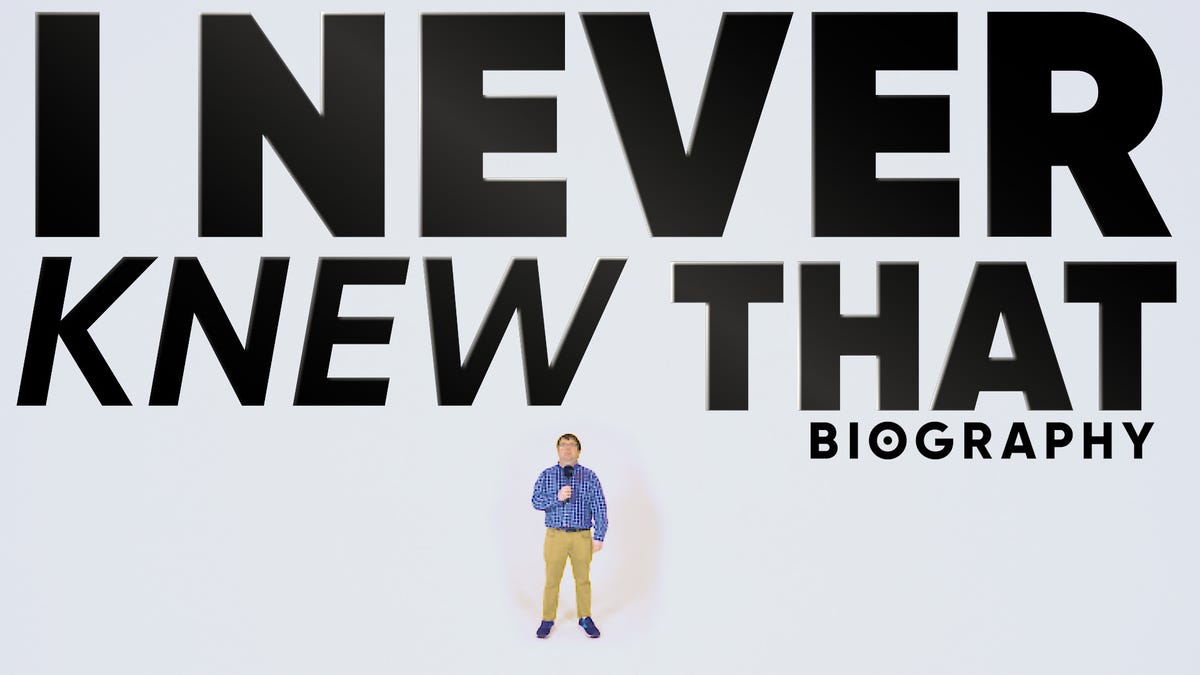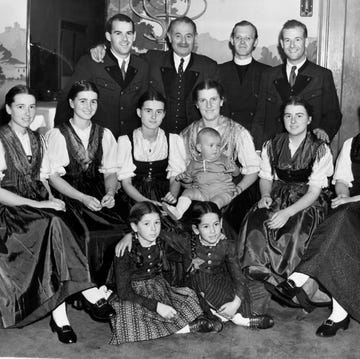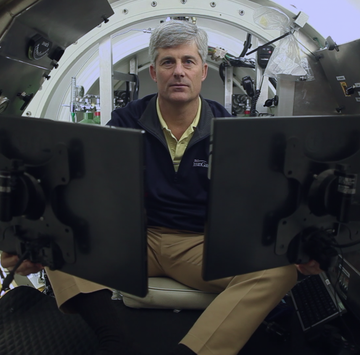Geoffrey Mason was a budding TV producer eager for one of the biggest assignments of his career: coordinating ABC’s coverage of the 1972 Summer Olympic Games in Munich. Instead, a tragedy unfolded that would shape his own career and mark a momentous day in live television.
The story of Mason and the network’s historic broadcast of the 1972 Munich massacre is the subject of September 5, the historical drama directed by Tim Fehlbaum. Now in theaters, the movie stars John Magaro as Mason and gives a dramatized account of how ABC’s team of producers and reporters boldly covered the deadly crisis.
The movie’s title refers to the date on which the Palestinian militant group Black September took members of the Israeli Olympic team hostage that ended in a failed rescue attempt by German police. It’s considered the first act of terrorism shown on live broadcast to a global audience—with an estimated 900 million viewers tuning in.
Confronted by the shocking events unfolding, Mason made the crucial decision to show them in full detail. “I remember thinking, good Lord: We’re supposed to be watching Mark Spitz go for seven gold medals and Olga Korbut—the new face of Russian gymnastics—and I’m now watching people crawl across a roof getting ready to stage a military assault on terrorists,” Mason said.
ABC committed to stay live until the crisis ended
Mason was expecting a slow day for the Summer Games as he left the Sheraton hotel for his early-morning shift around 5:30 a.m. Instead, he found a lot of people and police cars had gathered near the ABC broadcast center only 100 yards from the Olympic village.
The horrifying details of the situation soon emerged. Terrorists had infiltrated the living quarters of Israel’s athletes, killing a weightlifter and wrestling coach and taking nine others hostage. Medal competitions, no longer the priority, were suspended later in the day.
According to The Guardian, Mason and his team wheeled a large camera outside to overlook Building 31, where the hostages were held. However, the gravity of situation began to sink in. “That was one of the first things we discussed: What are we going to do if we happen to be in a position of potentially watching someone be killed live on TV?” Mason said.
Roone Arledge, who was then ABC Sports President and is played by Peter Sarsgaard in September 5, resolved to cover the hostage situation live until its conclusion, led in the studio by anchor Jim McKay. Arledge remembered how, almost a decade prior, NBC had managed to be the only network with a camera inside Dallas police headquarters to capture the fatal shooting of John F. Kennedy’s accused assassin, Lee Harvey Oswald.
“The cardinal error is to be there with the only live camera and then miss whatever might happen,” Arledge later said in the 1994 biography The House That Roone Built.
Peter Jennings had to report in disguise
While Mason helped control how the scene unfolded on TV screens, reporter Peter Jennings placed himself in danger to offer important commentary about the crisis.
At the time, Jennings worked as a correspondent for ABC News covering the Middle East and the ongoing Israeli-Palestinian conflict. Because Arledge wanted a news reporter to follow non-sports activity at the Games, he offered Jennings the job as a form of “rest and relaxation” from his usual assignments. “It took me all of 10 seconds to say yes,” Jennings said in the documentary Our Greatest Hopes, Our Worst Fears.
Little did Jennings realize his knowledge of the Middle East would prove crucial to ABC’s coverage. According to Time, Jennings used fake credentials and an Olympic uniform to disguise himself as one of the athletes, allowing him to take position on the 11th floor of the building housing the Italian delegation. Once there, he communicated via walkie-talkie and a landline telephone as he kept an eye on the building with the Israeli team.
Because of his background, Jennings also surmised that Black September was likely behind the attack before concrete details emerged. He stayed with the Italian team until around 10 p.m. when two helicopters, carrying eight members of Black September and the nine remaining hostages, departed for nearby Fürstenfeldbruck Air Base. There, German police hoped to carry out a last-chance rescue mission.
Jennings’ experience in Munich informed his career years later. Starting in 1983, he served as the lead anchor for ABC’s World News Tonight until his death from lung cancer in August 2005. He revealed the Olympic hostage crisis influenced his live commentary on other significant global events, most notably the World Trade Center attack on September 11, 2001.
“People often ask me how did I get through all the many hours of live broadcasting on 9/11, and the answer is quite simple: I’m trained to do that,” Jennings said. “And people say, ‘Well, it’s never happened before.’ And I’m inclined to say, ‘Well, something of this dimension has never happened before, but I was at Munich in 1972.’”
ABC won 29 Emmys for its coverage
As the events of September 5 continued to unfold, ABC’s news department asked to take control of coverage away from the sports team, but Arledge refused. “We all felt very strongly that we’re a hundred yards away,” Mason told The Guardian. “Why do we want someone from a new studio in New York, be they good or bad—who cares? Why would we think that they’re better equipped to handle this story than we are being a hundred yards away?”
And so it was Mason who had the unenviable task of confirming to Arledge what everyone feared: The rescue mission at Fürstenfeldbruck had failed.
Just past midnight on September 6, the abductors killed eight of the hostages by gunfire. The ninth, David Berger, died of smoke inhalation after a grenade was thrown into one of the helicopters, causing an explosion. “They’re all gone,” McKay somberly announced after more than 16 hours on the air. In total, the terrorist attack left 11 Israelis dead.
ABC’s coverage of the somber events received acclaim. Walter Cronkite commended McKay in a telegram, and according to The New York Times, ABC talent won a combined 29 Emmys for news and sports reporting.
Mason had led a pivotal moment in TV history but felt only sadness as he returned to his hotel with colleague Don Ohlmeyer on September 6. The pair retreated to their rooms, poured out a cocktail, and cried. “Whenever I revisit this day, this experience, this time, I feel sad. I still feel very sad,” Mason said.
Mason became a Hall of Fame producer
Over the years, Mason worked for ABC, NBC, Fox, ESPN, and NFL Network. He helped produce coverage of memorable sports moments including the 1980 Wimbledon final between Björn Borg and John McEnroe and the 1989 World Series, which was delayed more than a week because of the Loma Prieta earthquake. Mason has also contributed to nine Olympic Games and six FIFA World Cups, according to Time.
Now in his 80s, Mason was inducted into the Sports Broadcasting Hall of Fame as a producer in 2010. He currently runs an independent production company and, for a time, served on the board of directors for the Betty Ford Center. The treatment center holds personal significance to Mason. He went to rehab there in 1983 while struggling to manage his alcoholism.
Reflecting on the Munich crisis with The Guardian, Mason demurred to place too much importance on ABC’s coverage. “I, like anyone, watch the unfolding of events in our world and feel extremely lucky to have been tangentially involved in the telling of the stories of those events,” he said. “I leave it to the historians to put meaning and substance and perspective to that.”
Watch September 5 in Theaters
The real Mason served as a consultant for September 5 and had multiple conversations with Magaro—the “other Geoff”—to help prepare the actor for the role. He told CBS Mornings in December 2024 he was impressed with the “degree of authenticity” behind the movie and that Magaro “did an incredible job.”
Prior to filming, Magaro shadowed real producers and writers. “Anyone who’s been in a control room... it’s a very specific language. I’ve been saying it’s almost like conducting an orchestra or learning an instrument,” Magaro said. “Anyone who’s been in the situation would see through it if we were doing it fake. So, to respect [Mason] and what he did that day, I wanted to learn as much as I possibly could to get it right.”
You can see Magaro and director Tim Fehlbaum’s take on the tragic day in Munich with September 5 now playing in theaters. The movie also stars Peter Sarsgaard as Roone Arledge and Benjamin Walker as Peter Jennings.
Tyler Piccotti joined the Biography.com staff as an Associate News Editor and is now the News and Culture Editor. He previously worked as a reporter and copy editor for a daily newspaper recognized by the Associated Press Sports Editors. In his current role, he shares the true stories behind your favorite movies and TV shows and profiles rising musicians, actors, and athletes. When he's not working, you can find him at the nearest amusement park or movie theater and cheering on his favorite teams.















